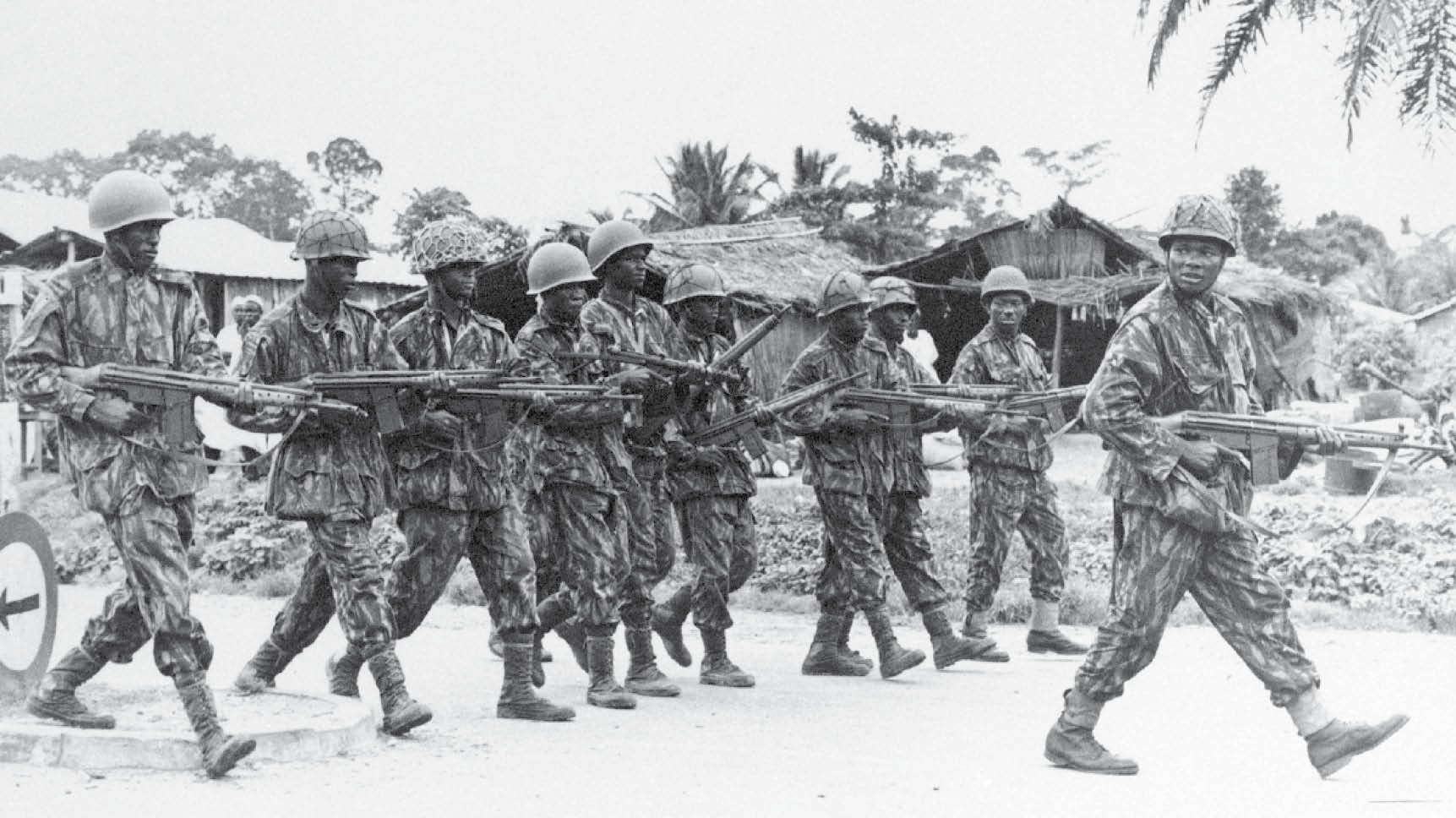Retired Warrant Officer Yusuf Gamana joined the Nigerian Army in 1969; at the tail end of the country’s civil war. He thinks his sacrifice and those of other fallen heroes may have been for nothing.
What led to your participation in the civil war?
I was in a village called Dampar, under the defunct Benue-Plateau, near Ibbi Local Government Area of now Taraba State when I joined the army. I was born in a village in Donga LGA in Taraba, but was living with my brother in Dampar when I joined the army. As teenagers, we used to listen to the songs of Dan Maraya and we would gather round a radio set to listen to military chantings. One of our friends, Danlami, returned home from the army and he saw us dancing to Dan Maraya’s song and he became overzealous and kicked the radio set. Everyone ran, but being my friend, I walked to him, but he quickly removed his belt and started flogging me. I had to run. I wondered why my friend would do that to me, but then I was told that a soldier is a soldier and you don’t play with him even if he is your son. This was someone who used to sleep in the same room with me. Then another boy, Danjuma, also a friend, joined the army and he sent a message home that I should be guarding his house and that if he returns and sees his compound overgrown with grasses, he would deal with me. I couldn’t believe it. Both of them are now late. I was worried and vowed to also join the army. Myself and some of my friends decided to join and we were asked to come to Ibbi. We were taken to Makurdi and I was taken to the home of the Hakimi of Ibbi, who is now late. He asked me to stay in his house and not join the army. After some weeks, our money finished and my friends decided to go back home to make financial preparations, but the Hakimi asked me to stay back. So, I pleaded with him to let me see off my friends, from there, I followed them. We entered a gongoro (Nigerian slang for Mercedes 911 truck with locally built-up sides) from Ibbi to go to Gboko in Benue. We slept in Gboko and the next day went to Wukari and then I went to Donga to be with my brother, where I spent a month before going to the village. While at the village, they started yabbing (a satirical jibe) me as someone who couldn’t withstand the pressure in the army and had ran back. They nicknamed me Yusuf soldier. I was the only one among my friends that they yabbed. I got upset and convinced my friends to return. On a market day, we followed gongoro to Jos and we slept at Filin Sukuwa. During the recruitment, I was nervous because I thought I would not be selected. My friend was selected and the man was about to pass me when one of the staff told him to pick me. But the selection officer was puzzled and said I was short, but the other officer insisted and told him that I would grow taller. So I was selected at 19-years of age in 1969.
From Jos, we were taken to Pambegua under Kaduna, the recruitment officer diverted those in the trailer to Zaria and those of us in gongoro to Kaduna. We went to the Filin Sukuwa of artillery in Kaduna and started our training. After three weeks we were moved to new barrack where we entered Depot and from there, we were taken to Nsukka to complete our training because the Nigerian government had taken over Enugu and Umahia at that time.
Where were you when the war ended?
We were in the forest in Bande in Abia State. We heard on the radio that the war had ended and we were all happy.
How do you feel when you hear people demand for separation?
Those calling for war know nothing about war. You hear people speaking about war, but they have no idea what it is. All those that don’t want a unified Nigeria are likely going to regret it. People from southern Nigeria have houses in the north because the north has land and space and you see northern youths going to the south to live and work. That is one Nigeria, is it not better?

 Join Daily Trust WhatsApp Community For Quick Access To News and Happenings Around You.
Join Daily Trust WhatsApp Community For Quick Access To News and Happenings Around You.


